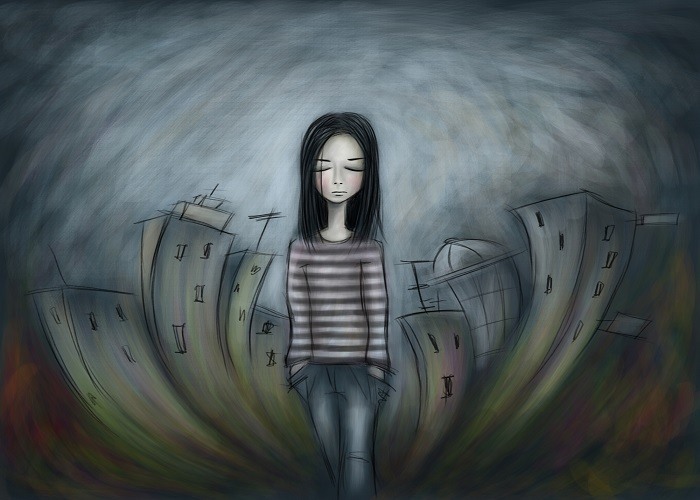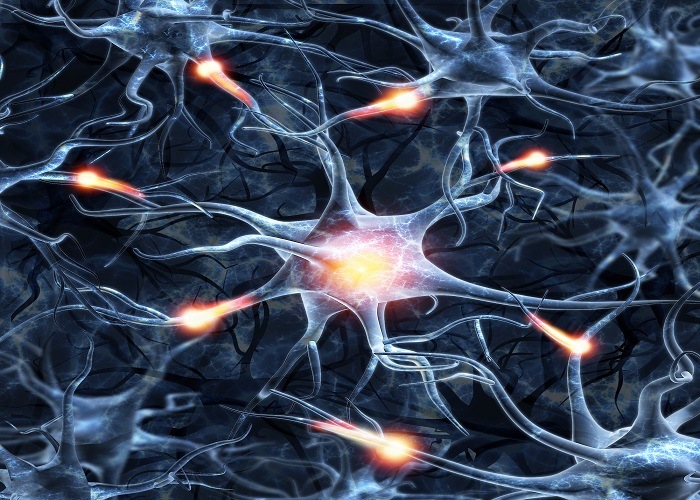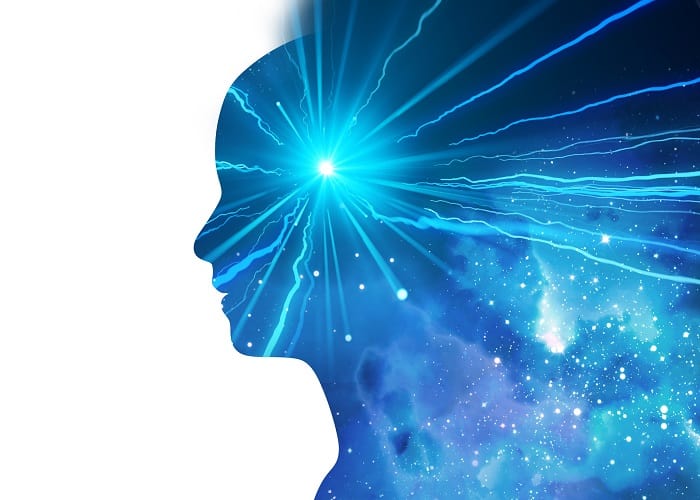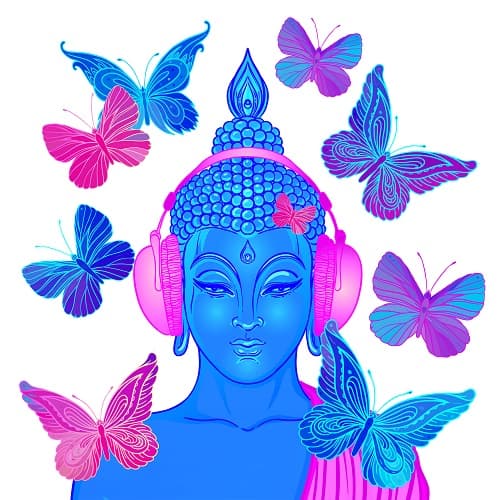
Depression is a debilitating condition that is classified as an illness or a disorder.
As many as 16 million Americans, or 6.7% of the population, have major depressive disorder and according to the World Health Organization, 264 million people worldwide suffer from depression with close to 1 million people taking their lives each year.
There are treatments for depression such as antidepressant drugs and psychotherapy, however, many people who suffer from depression fail to seek treatment due to social stigma, shame and the symptoms of depression themselves which include feelings of worthlessness and lack of energy and decision making.
Depression is triggered by life events, genetics and/or brain chemistry and is characterized by long-term feelings of sadness and as though life had no meaning.
As Andrew Solomon shared in his moving TEDTalk Depression, the secret we share, “The opposite of depression is not happiness, but vitality.”
Though not a cure for depression, affirmations can help those suffering from depression to find temporary relief from symptoms and, potentially, over time, help them develop more positive self-talk.
How do I know if I have depression?
There are many kinds of depression.
Some of them are shorter-term episodes that last no longer than two years while others are chronic conditions that follow a person throughout long periods of their lives.
The degree and number of symptoms can vary from person to person and some people may experience periods of more severe depression at certain points of their lives, sometimes triggered by major life events such as the breakup of a romantic relationship, the death of a loved one, job loss, health issues or others.
It should be noted however, that depression is not the same as the sadness that accompanies grief.
Grief is caused by a specific incident and its symptoms will eventually fade, while depression, though it may be aggravated by such incidents, is an already existing condition whose symptoms persist well beyond or even in the absence of a triggering event.
Some characteristics of depression are:
- Feelings of sadness
- Lack of interest in activities that used to bring you pleasure or satisfaction
- Lack of interest in work or social events
- Lack of energy, feeling consistently fatigued
- Sense of purposelessness
- Sense of worthlessness
- Lack of motivation
- Sense that life has no meaning
- Increased sense of shame and guilt
- Difficulty sleeping or sleeping a lot
- Weight loss or gain
- Lack of concentration
- Difficulty making decisions
- Slowed motor coordination and slowed speech
- Anxious movements such as fidgeting, hand-wringing or pacing back and forth
- Suicidal thoughts or suicide attempt
If you have five of these characteristics and they persist continuously for at least two weeks, you can be classified as having depression.

What causes depression?
Understanding what causes depression involves a lot of complex questions and many of them are still being studied.
Though thyroid disorders and vitamin deficiencies such as lack of B-12 can cause symptoms of depression, the long-term type of depression that sticks around for decades and even a lifetime seems to be connected to a variety of factors including the brain’s shape and chemistry, life events, genetics and other factors.
Areas of the brain affected by depression
Brain imaging technologies such as PET scans, SPECT scans and fMRI scans have allowed scientists to get a clearer picture of what areas of the brain are affected in depressed people.
The areas of the brain that are particularly linked to depression are the amygdala and the hippocampus.
One study published in The Journal of Neuroscience found that the hippocampus of 24 depressed women was 9-13% smaller than women with no history of depression.
Those with repeated depressive episodes had the smallest hippocampus.
Studies show that people with depression have high levels of activity in their amygdala.
The amygdala is a part of the brain that’s linked to emotions.
Activity in the amygdala increases when someone has or remembers having an emotionally-charged experience such as being afraid, angry, sad or pleasure as the amygdala is also related to sexual arousal.
Even when a chronically depressed person is not experiencing a depressive episode, the heightened activity in the amygdala persists.
Neurotransmitters

Neurotransmitters are responsible for accurately passing information that will gauge the brain’s appropriate reaction to certain situations and send the right signals in the right amount.
When they don’t function properly, any number of brain-chemistry related disorders can result, including depression:
- Serotonin, responsible for regulating sleep, appetite and mood, are found in lower levels in depressed people. Low levels of serotonin are also related to higher suicide risk.
- Norepinephrine which may increase anxiety can be higher in depressed people, also affecting the perception of motivation and reward.
- Gamma-aminobutyric acid (GABA) is believed to relieve anxiety. Low levels of it can result in higher levels of anxiety and depression.
Genetics
While brain chemistry, environmental and other factors account for 60% of cases of clinical depression, genetics accounts for as much as 40%.
A “depression gene” was recently isolated by a British research team who found that chromosome 3p25-26 were found in over 800 families with depression.
Gender
While women have an overall higher risk for depression, they also have a higher risk of hereditary depression with women with a depressed family member having a 42 percent chance of developing depression while men only have a 29 percent chance.
Stress
Continual stress and isolated stressful situations such as an attack or a car accident affect brain chemistry, overproducing “negative” chemicals such as cortisol, adrenaline and norepinephrine and inhibiting “positive” chemicals such as serotonin, responsible for balancing mood and providing a sense of well-being and melatonin, responsible for sleep and appetite regulation.
The stress response in the body can trigger an imbalance in chemicals, which, as we learned above, can trigger episodes of depression.

Early childhood trauma
Those who have experienced traumatic events in their childhoods such as physical or sexual abuse, the death of a parent or loved one or other traumas are at a higher risk for depression.
The trauma can become “locked” in the body.
As the popular phrase goes, “the issues are in the tissues”.
By becoming conscious of how this trauma has affected the trajectory of one’s life, they can learn to release the trauma which can affect brain chemistry and alleviate depression.
Medical problems
Those experiencing severe medical problems can also become depressed.
Physical pain, the disruption of regular life, work and relationships, consistent long-term medication and their side effects, frustration and grief can all trigger depression.
Having a support system and finding an activity that makes patients feel useful and gives them a sense of purpose can be helpful in combatting depression related to medical illness.
Heartbreak
Last, but certainly not least, is a broken heart.
The investment of time and emotional energy and the vulnerability offered in trust and physical intimacy can lead to devastation and depression when the relationship ends.
Learning to let go of feelings of loss, resentment, abandonment or other feelings related to heartbreak can help prevent the triggering of depressive episodes.
Developing habits that encourage self-care and self-love, including positive self-talk, can also be helpful tools.
Affirmations are proven to positively affect brain chemistry, making them a useful addition to other therapies used to treat depression.
When feelings of depression become overwhelming, try taking a slow, deep breath and repeat one of these affirmations:
- I am surrounded by love and support.
- My family loves me.
- My friends care for me and value my friendship.
- Being depressed is not my fault, I don’t need to feel guilty.
- I am whole and complete.
- My life has value and meaning.
- My life is worth living.
- This feeling will pass, just keep breathing.
- I am capable of feeling good, positive and content.
- My depression doesn’t define me.
- I am deeply cherished by my loved ones.
- I don’t need to do, be or produce anything to be loved.
- I don’t need to prove anything to anyone, I just need to take things one step at a time.
- I know my friends and family need me, even if right now I can’t see my worth.
- I am proud of myself for getting through this day.
- I can overcome this moment and have a good day.
- I am grateful for _____.
- I deserve peace, love and health.
- I am exactly where I’m supposed to be.
- I love myself unconditionally.
- I love myself and release myself from feelings of guilt, hurt and sorrow.
- I can have a new beginning.
- I am in the process of positive change.
- I am healing.
- I am in charge of how I feel and today I am choosing peace.
- I am at home in my body.
- My soul is at peace and my body is healthy and beautiful.
Positive affirmations can help alleviate feelings of depression by substituting depressive thoughts with positive self-talk.
You can incorporate these affirmations into a daily self-care practice or have them nearby to use on an as-needed basis.
Actor and humanitarian Stephen Fry offers this heartfelt advice, “If you know someone who’s depressed, please resolve never to ask them why. Depression isn’t a straightforward response to a bad situation…Try to understand the blackness, lethargy, hopelessness and loneliness they’re going through. Be there for them when they come through the other side. It’s hard to be a friend to someone who’s depressed, but it is one of the kindest, noblest and best things you will ever do.”
You may also be interested in:
2. Positive Affirmations For Men
4. Affirmations For Self Worth



